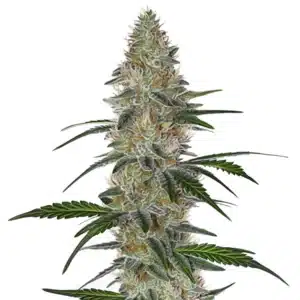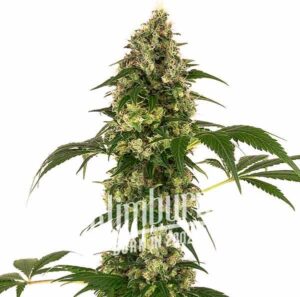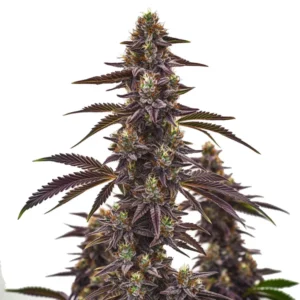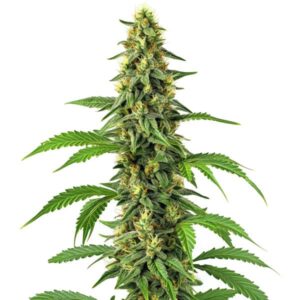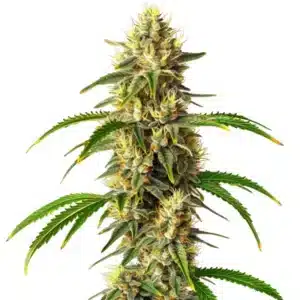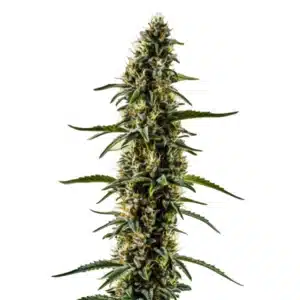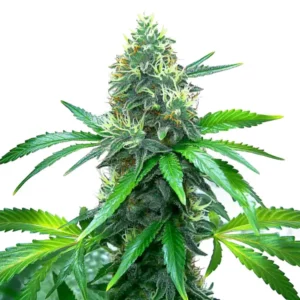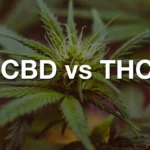
CBD to THC Conversion Process
The CBD to THC conversion it’s important to understand that this transformation involves a chemical process using an acid catalyst, often achieved by heating the two compounds together under controlled conditions. However, this reaction requires specific laboratory equipment and expertise it’s not a simple DIY project. While heating CBD alone can partially convert it to THC, this method is inefficient and can lead to a mixture of cannabinoids and unwanted impurities.
CBD, or cannabidiol, is a popular compound in cannabis known for its potential therapeutic benefits. THC, or tetrahydrocannabinol, is the compound responsible for the psychoactive effects of cannabis. Converting CBD into THC involves altering the chemical structure of the compound, which can be done through different chemical processes.
Recommended Strains
CBD Chemdog #4
|
|
CBD | 6% – 7% (Low) |
|
|
Type | CBD Feminized |
|
|
Yield | Low |
|
|
Phenotype | 55% Indica / 45% Sativa |
Afghan x Haze
|
|
THC | 22% - 25% (Medium) |
|
|
Type | Feminized |
|
|
Yield | Medium |
|
|
Phenotype | 40% Indica / 60% Sativa |
For those interested in the science of cannabis, the enzymatic conversion of CBD to THC can be a particularly intriguing subject. This method leverages enzymes to facilitate the transformation. However, it’s essential to note that this process requires precise conditions and is typically conducted in a lab setting.
Besides to the enzymatic approach, the CBD to THC conversion process can also be understood by exploring the underlying chemical reactions. These reactions not only illustrate the complexity of altering molecular structures but also showcase the innovative techniques used in modern cannabis science. The knowledge gained from these processes can be invaluable for those studying cannabis at an academic level.
Knowing the CBD to THC conversion process also opens the door to discussions about the broader implications of cannabinoid transformations. This can include the potential for developing new cannabis-based products with tailored effects, offering both recreational and medicinal benefits. Such advancements highlight the dynamic nature of cannabis research and its impact on the industry.
CBD to THC Conversion Method
When discussing the CBD to THC conversion method, it’s crucial to understand the basic chemistry involved. Both CBD and THC share the same molecular formula but differ in their molecular arrangement. This difference is what gives each compound its unique properties.
The conversion method often involves using heat and acidic conditions to alter the molecular arrangement of CBD. This chemical process to convert CBD to THC can be complex, but it essentially involves breaking and reforming molecular bonds. While fascinating, it’s a process best left to professionals.
Exploring the CBD to THC conversion method further reveals the importance of precise temperature control and the use of appropriate catalysts. Each step in the process must be meticulously managed to ensure that the desired transformation occurs without unwanted byproducts. This level of precision underscores the expertise required in chemical labs dedicated to cannabis research.
For those curious about how to convert CBD into THC, knowing the theoretical basis behind these methods can be enlightening. This knowledge not only demystifies the science but also emphasizes the significance of adhering to safety protocols. By appreciating the complexity of these conversion methods, enthusiasts can better grasp the advancements in cannabis technology.
Chemical Process to Convert CBD to THC
The chemical process to convert CBD to THC typically involves an acid-catalyzed reaction. This means an acid is used to facilitate the transformation. Common acids used include sulfuric acid and hydrochloric acid. These acids help rearrange the molecular structure of CBD, converting it into THC.
During this process, CBD is dissolved in a solvent before the acid is added. The mixture is then heated to encourage the conversion. This step requires careful temperature control to prevent unwanted side reactions. The result is a THC-rich extract that can then be purified for use.
This chemical process to convert CBD to THC is just one of several methods being researched for its efficiency and effectiveness. Scientists continue to explore alternative catalysts and reaction conditions that might offer improved yield and purity. Such research is crucial for optimizing the production of THC for various applications.
The chemical insights gained from studying the conversion process can also inform the development of new cannabis strains. By knowing how specific conditions affect cannabinoid transformations, breeders can potentially cultivate plants with novel cannabinoid profiles, expanding the diversity of cannabis products available to consumers.
Promos & Deals
Practical Applications and Considerations
While the CBD to THC conversion process is primarily a lab-based procedure, it highlights the incredible versatility of cannabis compounds. For growers and enthusiasts, knowing these processes can enhance their appreciation for the plant’s potential.
When choosing cannabis strains, it can be helpful to consider the natural CBD and THC content. For example, if you’re interested in strains with higher THC, you might explore options like Blue Dream, known for its balanced effects. Alternatively, strains like OG Kush offer a more intense experience with higher THC levels.
The practical applications of the CBD to THC conversion process extend beyond mere curiosity. By knowing how cannabinoids can be manipulated, researchers and industry professionals can create targeted products that cater to specific consumer needs. This is particularly relevant in the medicinal cannabis sector, where precise cannabinoid ratios are crucial for therapeutic efficacy.
Considerations for engaging with the CBD to THC conversion process also include navigating the regulatory landscape. Compliance with local and international laws is essential, as cannabinoid conversion can fall under stringent legal scrutiny. By staying informed about legal requirements, those involved in cannabis cultivation and production can ensure responsible and lawful practices.
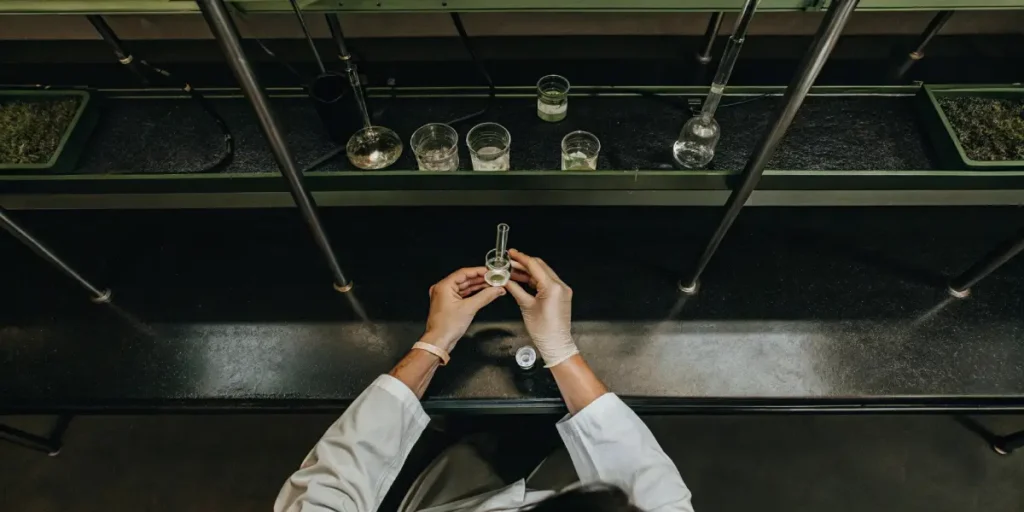
Cannabis Strains to Consider
For those looking to grow cannabis with specific cannabinoid profiles, choosing the right seed is crucial. Gelato is one such strain that offers a delightful balance of CBD and THC, making it a favorite among many growers.
When selecting seeds, it’s essential to consider the growing conditions and desired effects. Strains like Blue Dream and OG Kush not only offer unique cannabinoid profiles but also provide distinct growing experiences. These strains can be grown indoors or outdoors, depending on your setup and climate.
Exploring different cannabis strains can significantly enhance your knowing of the CBD to THC conversion process. By selecting strains with varying levels of cannabinoids, growers can experiment with different profiles and observe how they influence the overall plant characteristics. This hands-on experience can provide valuable insights into cannabis cultivation.
Furthermore, choosing strains with known genetic stability, such as those offered by reputable seed banks, ensures a successful growing season. By investing in high-quality seeds, growers can minimize the risk of unexpected variations, allowing for a more controlled exploration of cannabinoid development.
CBD to THC Transformation Steps
The CBD to THC transformation steps involve several critical stages. Each step must be carefully controlled to ensure a successful conversion. The process begins with selecting the right CBD-rich starting material.
Once the material is chosen, it’s dissolved in a solvent, and the acid catalyst is added. The mixture is then heated to encourage the conversion. This step is crucial, as the temperature must be precisely controlled to avoid degrading the cannabinoids.
Delving into the CBD to THC transformation steps further reveals the intricacies of each phase. From solvent selection to catalyst application, every decision impacts the efficiency and outcome of the conversion process. This highlights the need for a thorough knowing of chemical principles when engaging in cannabinoid transformations.
Advancements in technology and methodology continue to refine the CBD to THC conversion process. Researchers are constantly exploring new solvents and catalysts that offer improved safety and environmental impact. These innovations are paving the way for more sustainable and efficient transformation techniques in the cannabis industry.
Enzymatic Conversion of CBD to THC
Another method for converting CBD to THC involves the use of enzymes. This enzymatic conversion of CBD to THC is a more natural approach, leveraging biological catalysts to facilitate the transformation. While this method is less common, it offers a unique perspective on cannabinoid conversion.
Enzymes are proteins that speed up chemical reactions without being consumed in the process. In the context of CBD to THC conversion, specific enzymes can target the molecular bonds in CBD, rearranging them into THC. This method is still under research but holds promise for future applications.
The enzymatic conversion of CBD to THC represents an exciting frontier in cannabis science. By utilizing biological catalysts, researchers aim to develop more environmentally friendly and sustainable conversion methods. This approach not only reduces the need for harsh chemicals but also aligns with the growing demand for green technologies.
Ongoing research into enzymatic conversion continues to reveal its potential applications and limitations. Scientists are investigating the feasibility of scaling this method for industrial use, potentially revolutionizing how cannabinoids are transformed and broadening the scope of cannabis-based product development.

FAQs
What is the CBD to THC conversion process?
The CBD to THC conversion process involves transforming cannabidiol (CBD) into tetrahydrocannabinol (THC) through chemical reactions. This process is typically conducted in a lab setting, using specific conditions such as heat and acidic environments to facilitate the molecular rearrangement.
This transformation highlights the chemical versatility of cannabis compounds, allowing for the creation of products with varying cannabinoid profiles. While the process is complex, it provides valuable insights into the potential applications of cannabis chemistry.
Knowing the CBD to THC conversion process is crucial for those interested in the scientific and commercial potential of cannabinoids. By mastering the intricacies of these chemical reactions, researchers can contribute to the development of innovative cannabis products that meet diverse consumer needs.
Moreover, the conversion process serves as a testament to the adaptability of cannabis compounds, encouraging further exploration into other potential transformations. This ongoing research has the potential to unlock new applications for cannabinoids, enhancing the versatility and appeal of cannabis products worldwide.
How does the enzymatic conversion of CBD to THC work?
The enzymatic conversion of CBD to THC uses enzymes to facilitate the transformation. Enzymes are proteins that accelerate chemical reactions, making them ideal for this type of conversion. This method is still under research but offers a natural alternative to traditional chemical methods.
Although it’s less common than acid-catalyzed methods, enzymatic conversion represents a promising area of study. It could lead to more sustainable and efficient ways to produce THC-rich products in the future.
The potential of enzymatic conversion of CBD to THC extends beyond its immediate applications. By harnessing the power of enzymes, researchers can explore other cannabinoid transformations that may offer unique benefits. This line of research could lead to breakthroughs in how cannabinoids are utilized in both medicinal and recreational contexts.
As the knowing of enzymatic processes deepens, scientists are optimistic about the future of biologically assisted cannabinoid transformations. These advancements could redefine the landscape of cannabis production, offering new avenues for sustainable and efficient cannabinoid extraction and conversion.
Is it possible to perform the CBD to THC conversion at home?
Performing the CBD to THC conversion at home is not recommended. The process requires precise control of chemical reactions, often involving hazardous materials and conditions. Attempting this conversion without proper equipment and expertise can be dangerous.
Instead, it’s best to leave this process to professionals in a controlled lab environment. Knowing the science behind it can enhance your appreciation for cannabis but should not be attempted without proper knowledge and equipment.
For those interested in the CBD to THC conversion process, exploring educational resources and engaging with the scientific community can provide a safe and informative way to deepen your knowing. Seminars, workshops, and academic courses are excellent opportunities to learn from experts in the field.
By gaining a comprehensive knowing of the conversion process, enthusiasts can appreciate the complexity and precision involved in cannabinoid chemistry. This knowledge fosters a deeper respect for the expertise required to safely and effectively manipulate cannabis compounds in a laboratory setting.
Are there legal implications for converting CBD to THC?
Converting CBD to THC can have legal implications, depending on your location. THC is a controlled substance in many areas, and producing it without the necessary licenses and permits can result in legal consequences. It’s essential to understand and comply with local laws before considering any conversion processes.
For most enthusiasts and growers, it’s more practical to explore legal cannabis products and strains that naturally contain the desired cannabinoid profiles. This approach ensures compliance with regulations while still enjoying the benefits of cannabis.
Staying informed about the legal landscape surrounding the CBD to THC conversion process is crucial for anyone involved in cannabis cultivation or production. Laws and regulations can vary significantly between regions, making it essential to consult legal experts and remain updated on any changes.
By adhering to legal guidelines, individuals and businesses can avoid potential legal issues and focus on contributing positively to the cannabis industry. This commitment to compliance ensures the safe and responsible development of cannabis products and fosters a positive relationship with regulatory bodies.
What are some high-CBD strains available from Blimburn Seeds?
Blimburn Seeds offers a variety of high-CBD strains that cater to different preferences and growing conditions. One popular choice is Charlottes Web, known for its therapeutic potential with minimal psychoactive effects due to its high CBD content.
Another excellent option is CBD Kush, which provides a balanced experience with both CBD and THC. These strains are ideal for growers looking to cultivate cannabis with specific therapeutic properties, offering a rewarding cultivation experience.
Exploring high-CBD strains can enhance your knowing of the CBD to THC conversion process by illustrating how different cannabinoid levels impact plant characteristics. By growing strains like Charlotte’s Web and CBD Kush, enthusiasts can observe first-hand the effects of varying CBD and THC ratios on their cultivation outcomes.
Additionally, choosing high-quality seeds from established providers like Blimburn Seeds ensures a reliable and satisfying growing experience. These strains are carefully bred for their unique properties, offering both novice and experienced growers a chance to cultivate plants with exceptional therapeutic potential.


